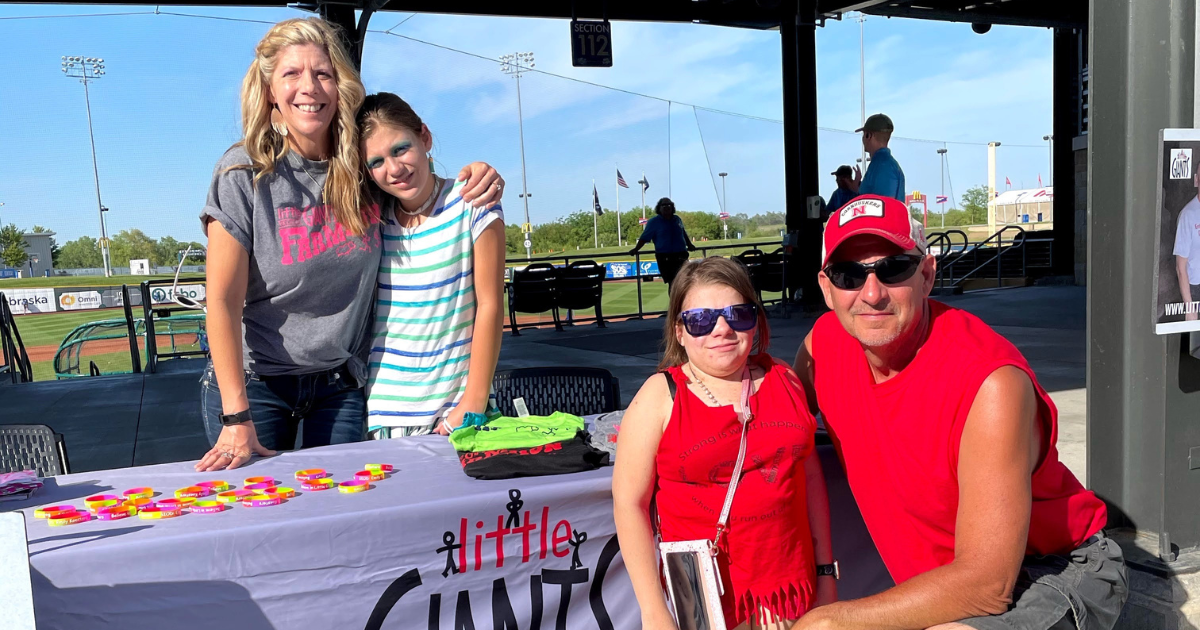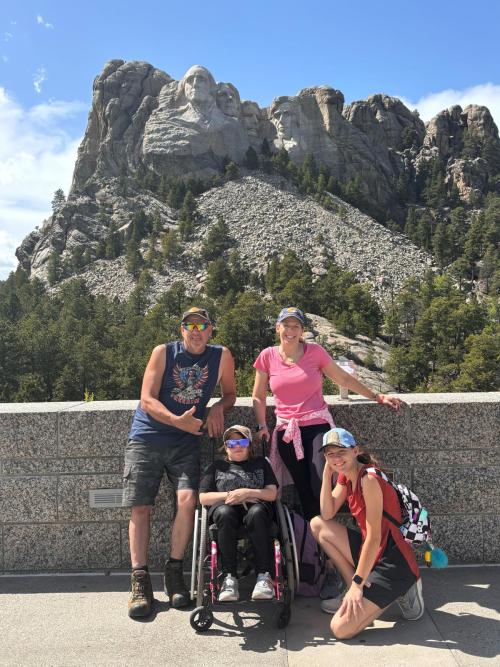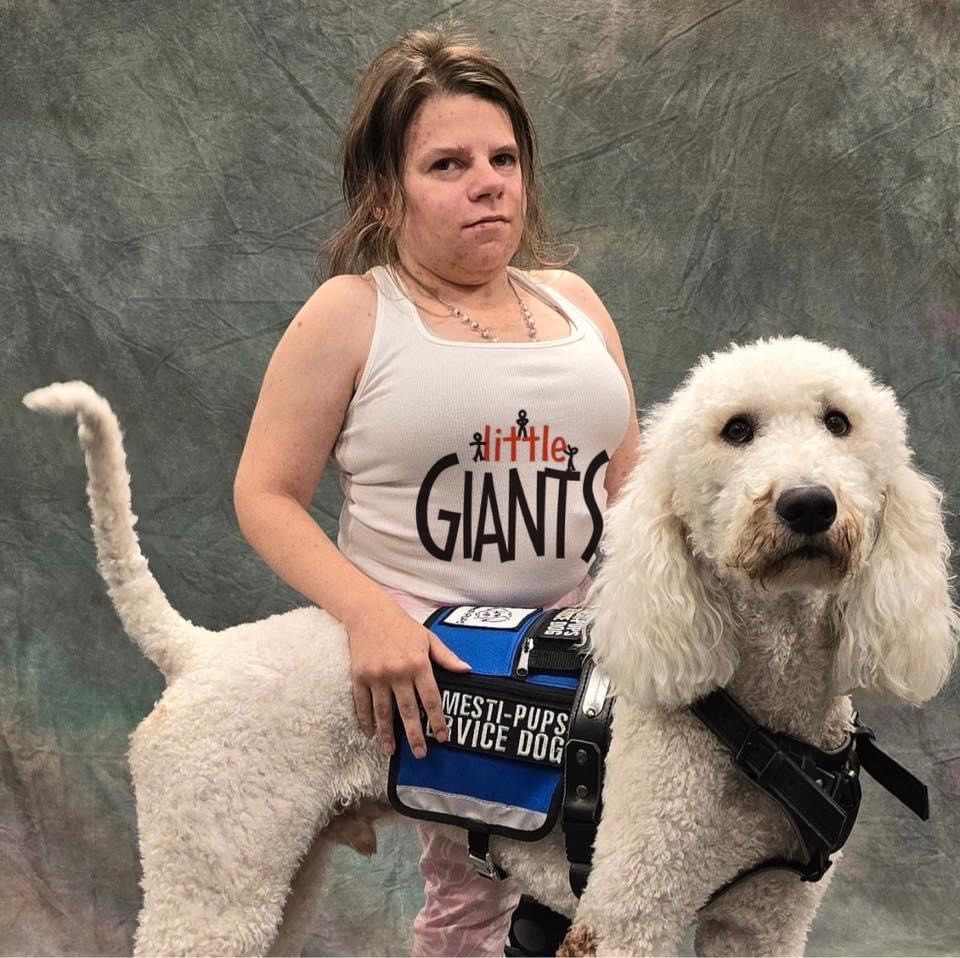Against all odds: 21-year-old with rare condition transitions to adult care

At 21 years old, Emily Koesters defies medical expectations. Born with Schimke immuno-osseous dysplasia, or SIOD, a rare genetic condition with a typical life expectancy of nine years, Emily recently achieved another milestone: transitioning from pediatric to adult medical care.
“To even look at going into adult care when we first started talking about it was mind-blowing to us,” says Emily’s mother, Erin Koesters. “We were grateful that we had that opportunity.”
SIOD affects multiple body systems. Emily, who is the height of an average 6- or 7-year-old, has faced numerous medical challenges, including kidney failure at age 4, followed by a transplant and cancer. Her complex care requires various specialties across Nebraska Medicine and Children’s Nebraska.
The transition to adult care began when Emily’s longtime pediatrician, David Finken, MD, prepared to move to a different practice. He asked Rachel Johnson, MD, a combined internal medicine and pediatrics physician, to take over Emily’s care.
“Emily has Children’s Nebraska providers and Nebraska Medicine providers,” Dr. Johnson says. “I straddle both systems, so I can help coordinate some of that care.”
This coordination is crucial for Emily, who requires careful management across multiple specialties and works with researchers at Stanford University studying SIOD. Dr. Johnson’s position within the Nebraska Medicine system facilitates quick communication between specialists.
“I can email Emily’s transplant team, see that her cancer doctor is ordering a PET scan and coordinate care faster,” Dr. Johnson says. “That’s great, rather than trying to send for medical records or track down a nurse to talk to somebody.”

The Koesters family’s advocacy has played a vital role in Emily’s care. In 2014, they established Little Giants, a nonprofit organization that supports SIOD research. Erin left her teaching career in 2017 to focus on Emily’s care and advocacy work full-time.
“Don’t be afraid to advocate for your child,” Erin advises other parents managing complex medical transitions. “It’s OK to ask questions. Make sure the doctors are communicating with one another. You know your child best; the doctors want to hear that input.”
This collaborative approach has eased Emily’s transition to adult care. Dr. Johnson maintains regular contact with the family, speaking with them and coordinating with specialists when new issues arise.
“I think that’s probably one of the blessings of working for Nebraska Medicine,” she says. “We have a little bit more wiggle room in our schedule. We can take a little bit more time with patients if we need to.”

Beyond her medical needs, Emily lives an active life. She participates in equine therapy and recently welcomed a service dog to help with independence at home. She has a passion for animal welfare that began during her early hospital stays, when she would make and sell crafts to raise money for cheetah conservation.
Her successful transition to adult care demonstrates Nebraska Medicine providers’ capability to manage complex care cases across the age spectrum. Through collaboration between specialists, regular communication with families and careful coordination of care, the health system helps patients like Emily navigate the path from pediatric to adult medicine.
“Dr. Johnson has been so caring, she’s not in a hurry, and she has stuck to her word and been available,” Erin says. “She’s been everything we could have asked for.”




